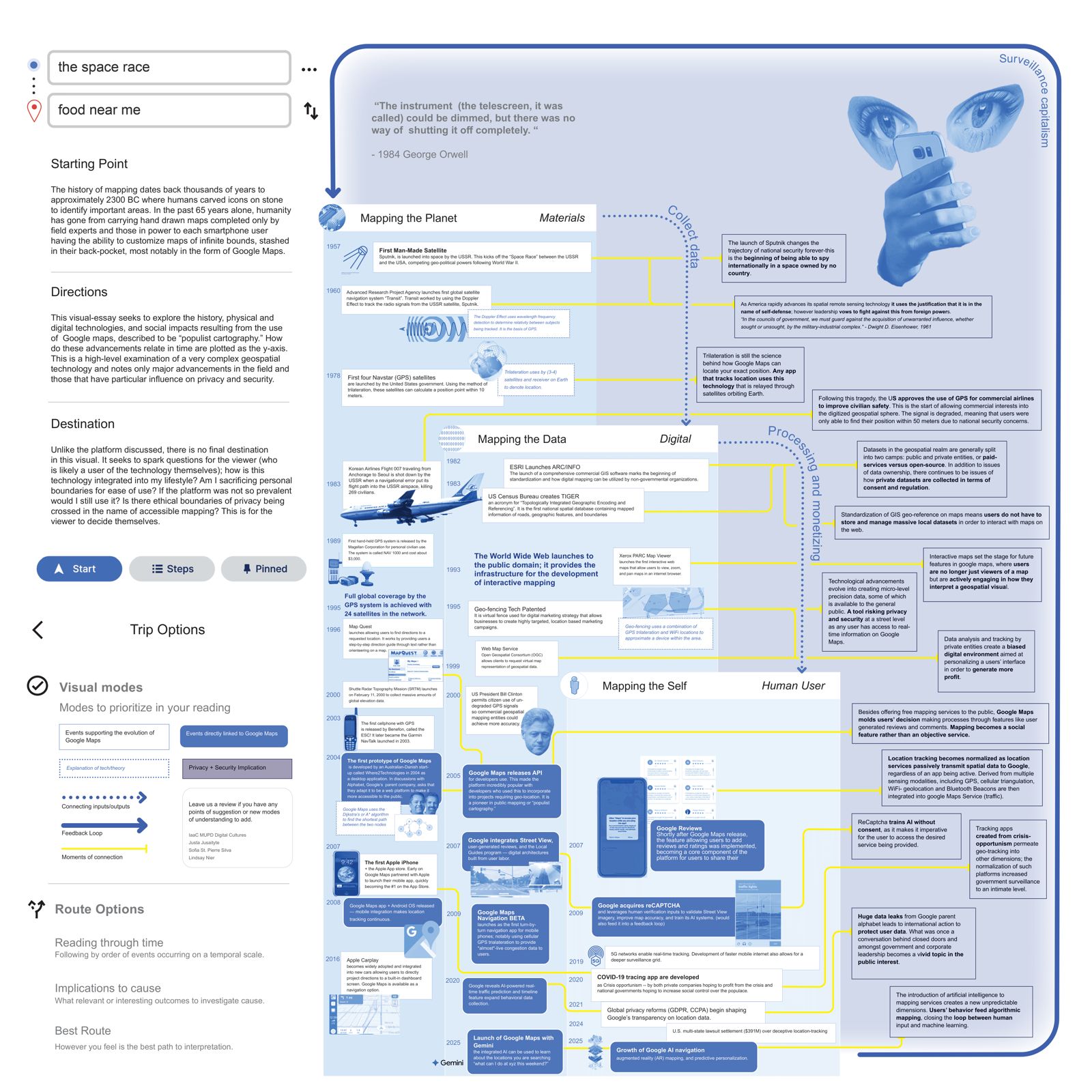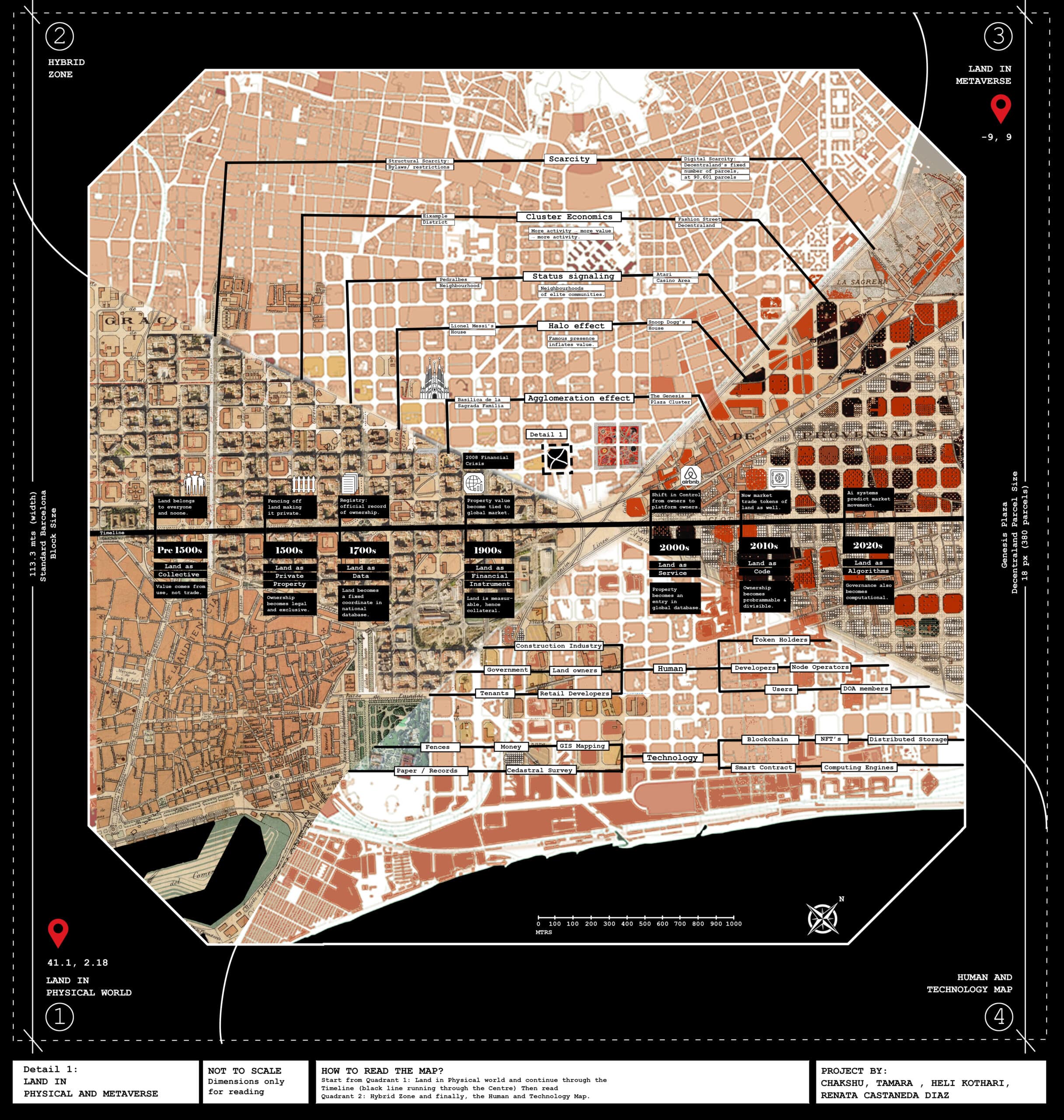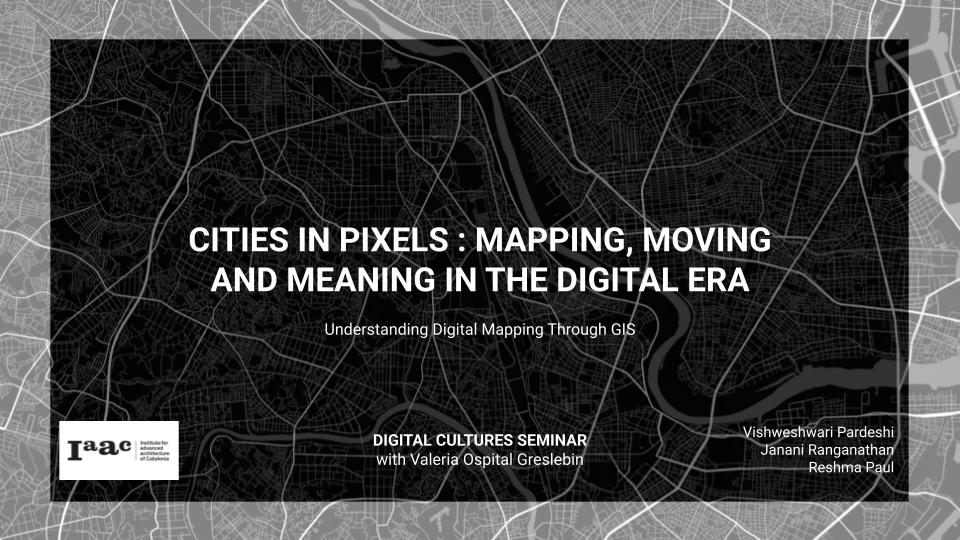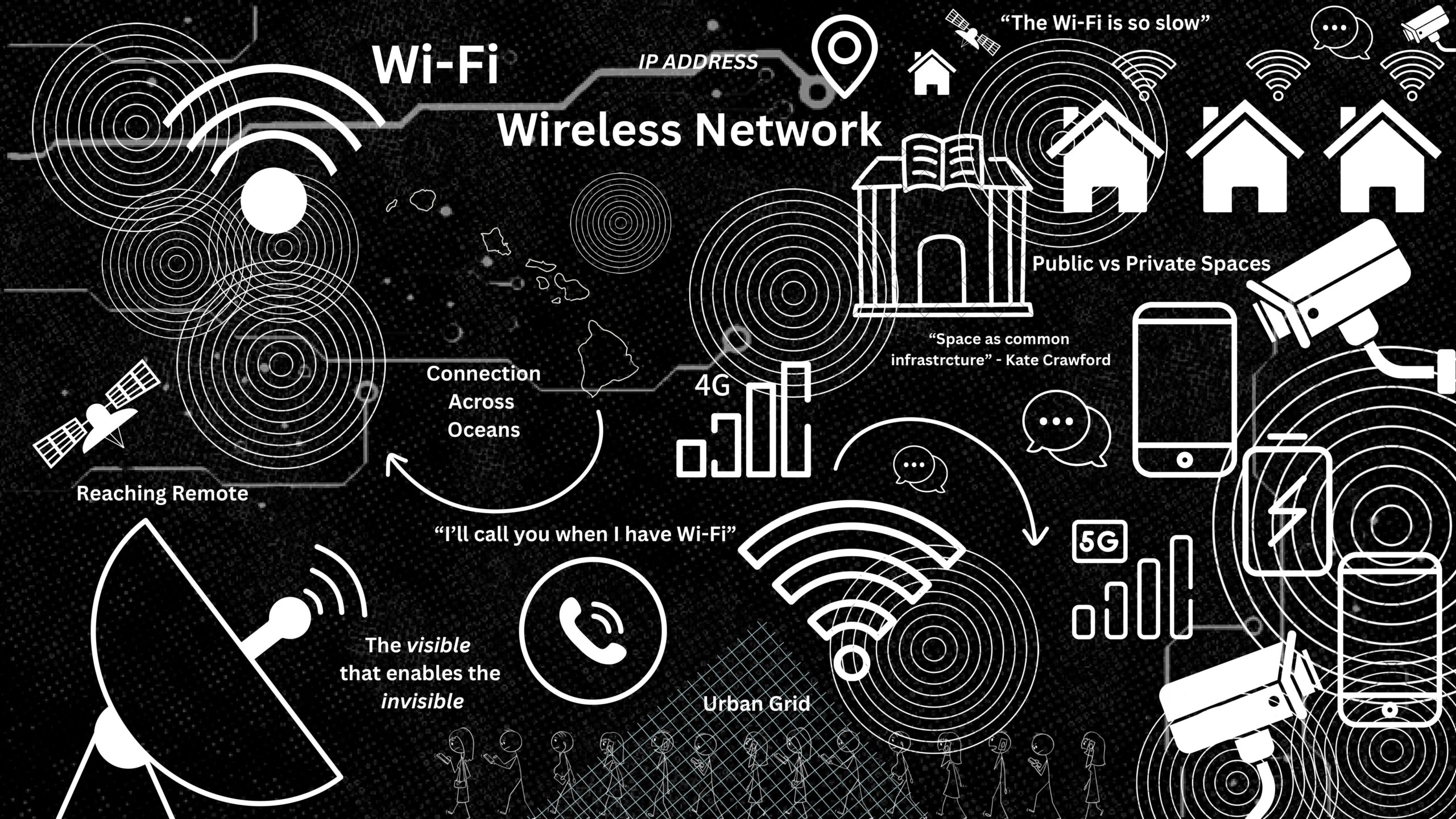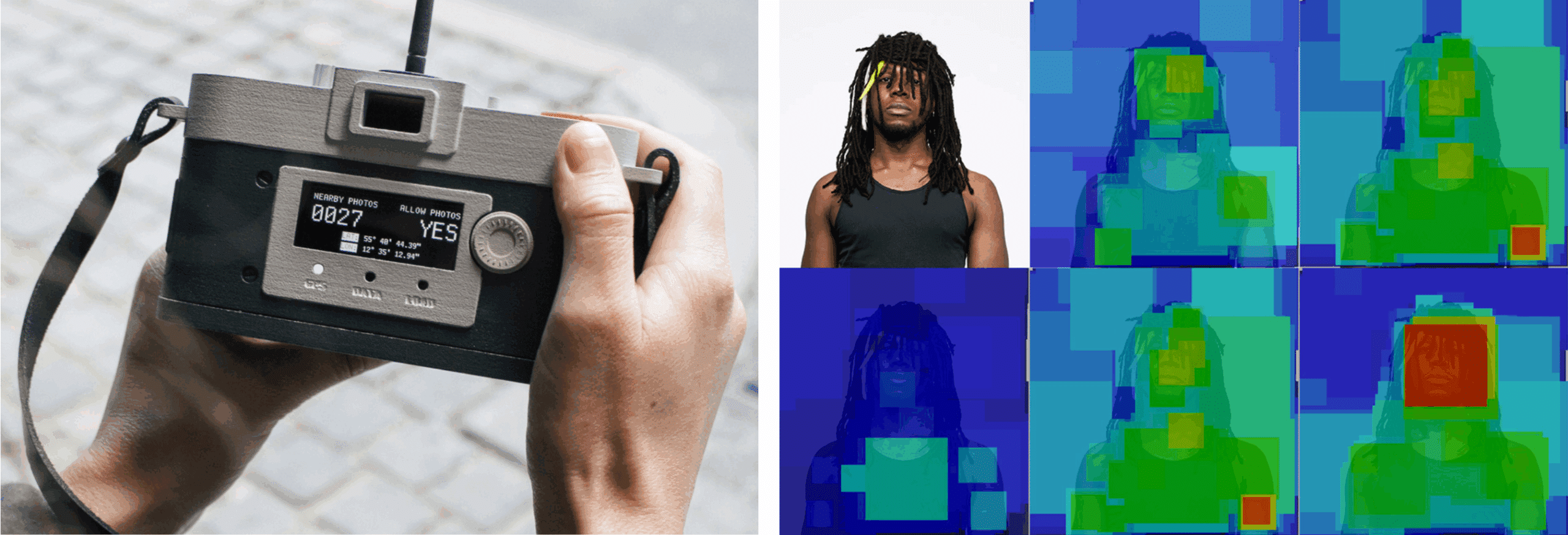
Credits: Camera Restricta, a disobedient tool for taking unique photographs by Philipp Schmitt (left).
CV Dazzle, a form of camouflage from computer vision by Adam Harvey (right).
“High-tech culture challenges this dualism in intriguing ways. It’s not clear who makes and who is made in the relation between human and machine. It is not clear what is mind and what is body in machines that resolve into coding practices. Insofar as we know ourselves in both formal discourse (for example, biology) and in daily practice (for example, the homework economy in the integrated circuit), we find ourselves to be cyborgs, hybrids, mosaics, chimeras” The Cyborg Manifesto, Donna Haraway, page 11.
The seminar’s six sessions will intertwine a series of lecture-performances¹ with the development of a tool-essay² to interrogate how digital systems shape knowledge, bodies, and worlds. Both formats approach digital cultures through critical doing, insisting on the inseparability of “the digital” universe from our modes of practice.
We will delve into issues such as how The Internet Exists on Planet Earth (i.e., material infrastructures, resources, and labor), Platform Theory, Cyborg Anthropology, the Digital Self, Digital Differences, and Worldbuilding. In parallel we will develop a series of tool essays. First by choosing a piece of software, hardware, or a platform and developing an “anatomy of [___]” research visualization, building on Kate Crawford and Vladan Joler’s work on technology’s interwoven histories and infrastructures. This will then form the substrate for groups to propose a tool-essay on an existing or speculative tool (software/hardware/platform).
Notes
¹ Lecture-performance: experimental modes of knowledge-making that critique and rework established lecturing tropes and tools, in order to test how the (digital) medium we use mediates understanding and knowledge production (inspired by Mindy Seu’s performative readings and lecture works).
² Tool-essay (neologism): A visual essay uses the power and rhetoric of images to provide a critical narrative. A tool-essay is a format where the tool itself (software or hardware) becomes the central rhetorical element, shaping both content and form; being the subject of reflection and the medium of exploration.

Credits: Calculating Empires, a genealogy of technology and power since 1500, by Kate Crawford and Vladan Joler
Learning Objectives
Throughout the workshop, students will:
- Develop analytical skills to examine how digital systems influence knowledge production, embodiment, and cultural practices.
- Collaborate to design and refine research methodologies for interrogating complex digital systems.
- Synthesize research findings into a visual format that maps interwoven technological histories and infrastructures.
- Experiment, design, and produce collaboratively a speculative or analytical tool-essay that integrates research, critique, and creative practice.




